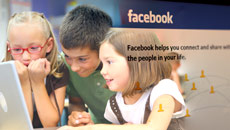The Milky Way, the galaxy that contains our solar system, is way smaller than astronomers previously thought, says a study.
It is approximately half the weight of a neighbouring galaxy - known as Andromeda - which has a similar structure as our own, the findings showed.
The Milky Way and Andromeda are the two largest in a region of galaxies which astronomers call the Local Group.
To reveal their total weights, the researchers worked out the mass of invisible matter found in the outer regions of both galaxies.
They estimated that Andromeda contains twice as much dark matter, a little-understood invisible substance which makes up most of the outer regions of galaxies, as the Milky Way, causing it to be twice as heavy.
"We always suspected that Andromeda is more massive than the Milky Way, but weighing both galaxies simultaneously proved to be extremely challenging," said Jorge Penarrubia from University of Edinburgh in Britain.
"Our study combined recent measurements of the relative motion between our galaxy and Andromeda with the largest catalogue of nearby galaxies ever compiled to make this possible," Penarrubia added.
Although both galaxies appear to be of similar dimensions, until now scientists were unable to prove which is larger.
Previous studies were only able to measure the mass enclosed within both galaxies' inner regions.
Their findings also provide further evidence in support of a theory which suggests that the universe is expanding.
The study appeared in the journal Monthly Notices of the Royal Astronomical Society.





